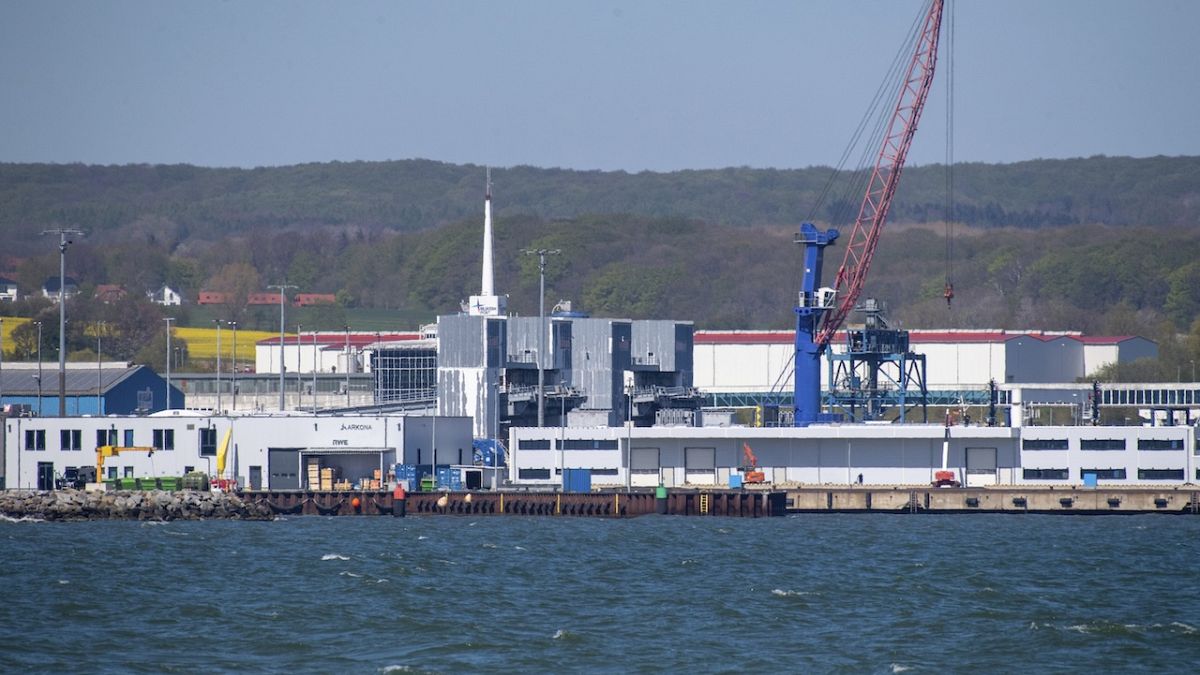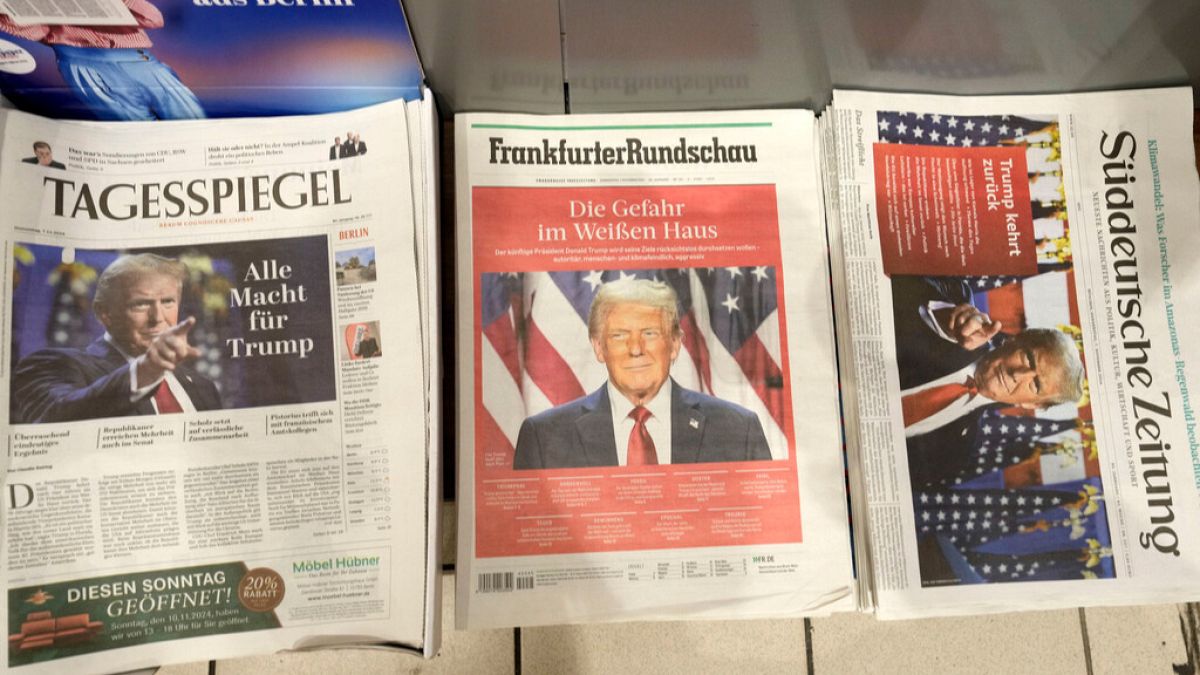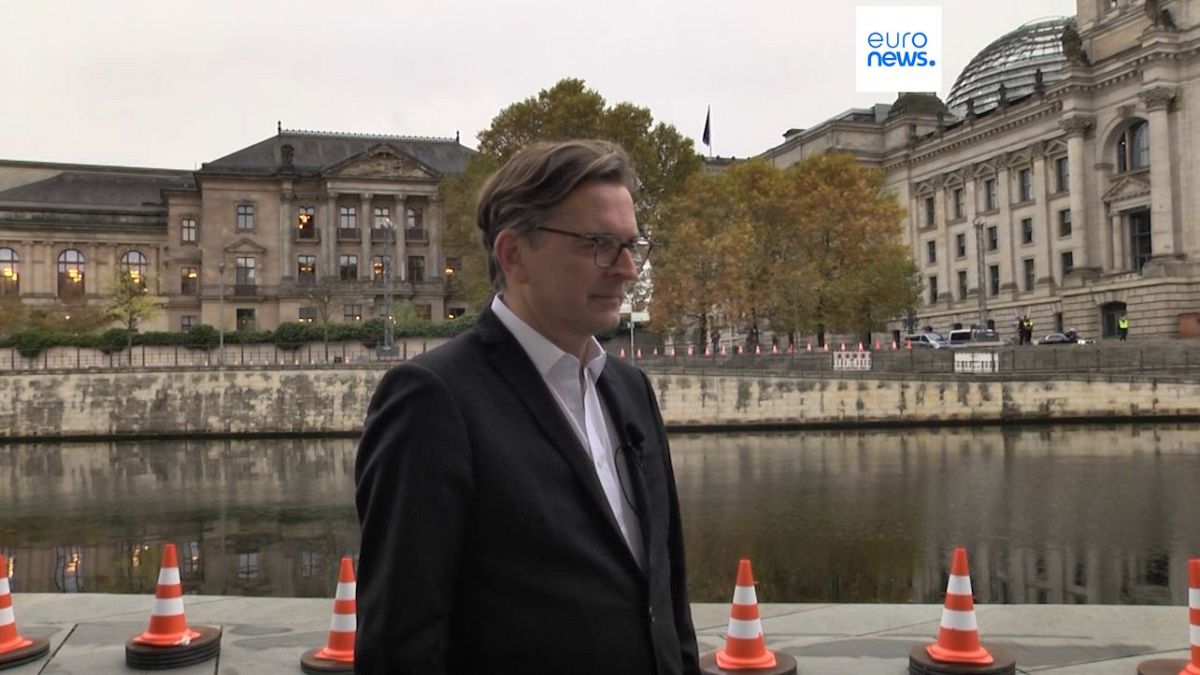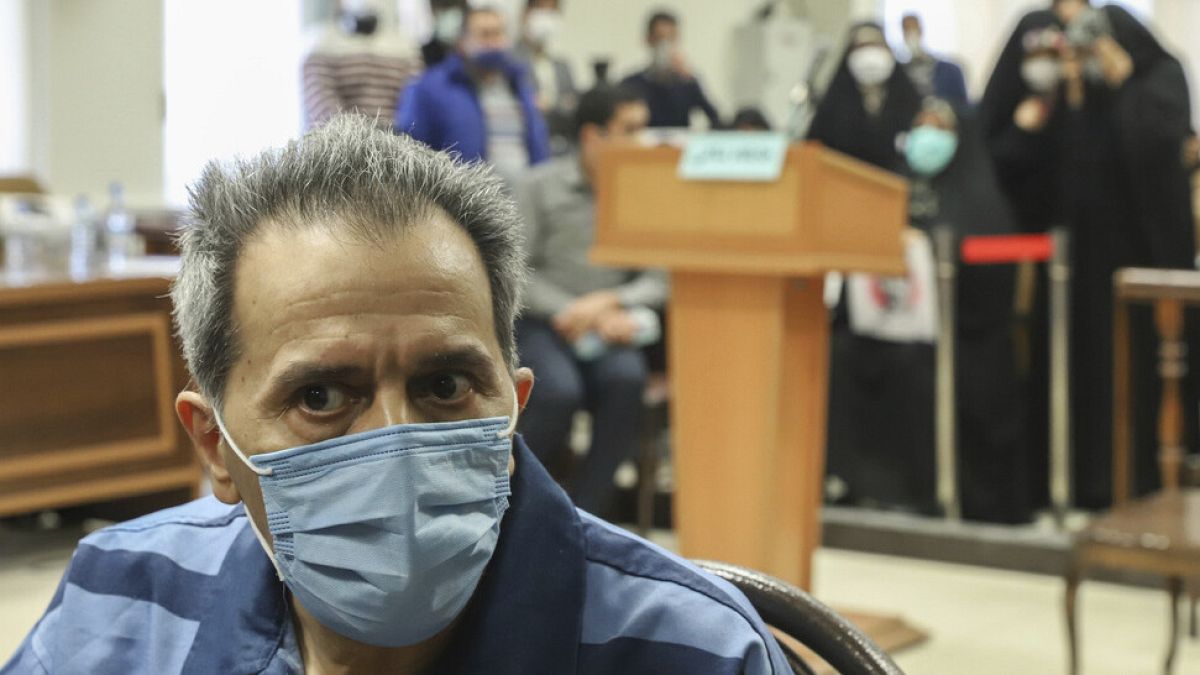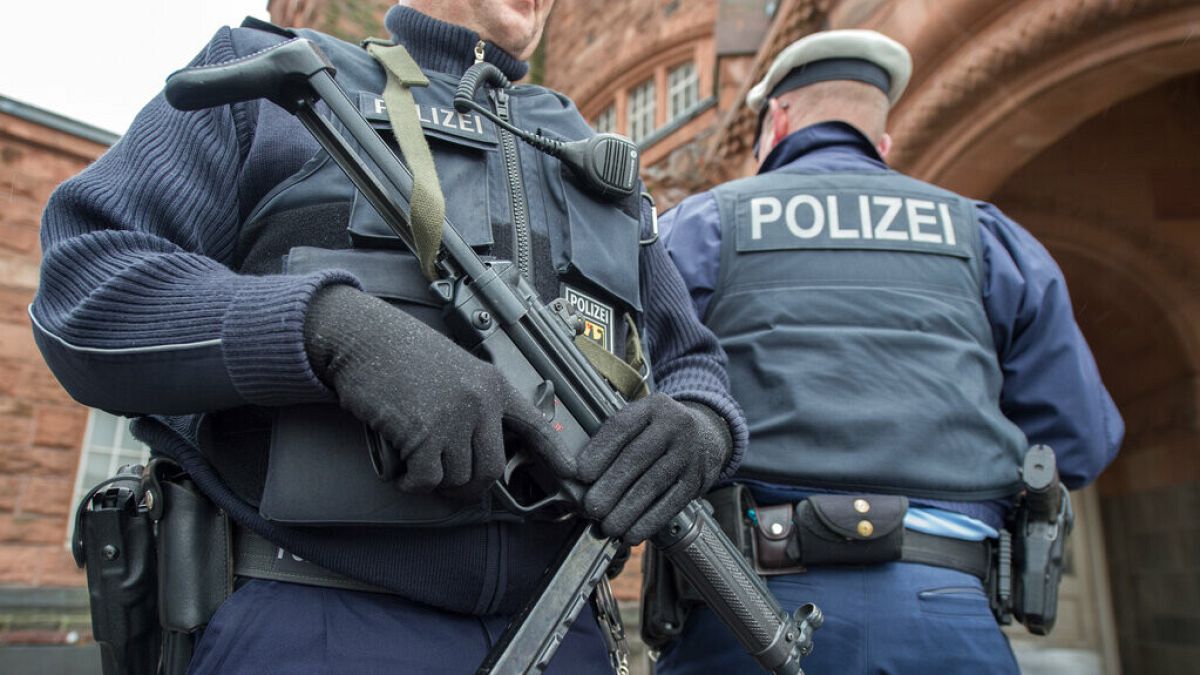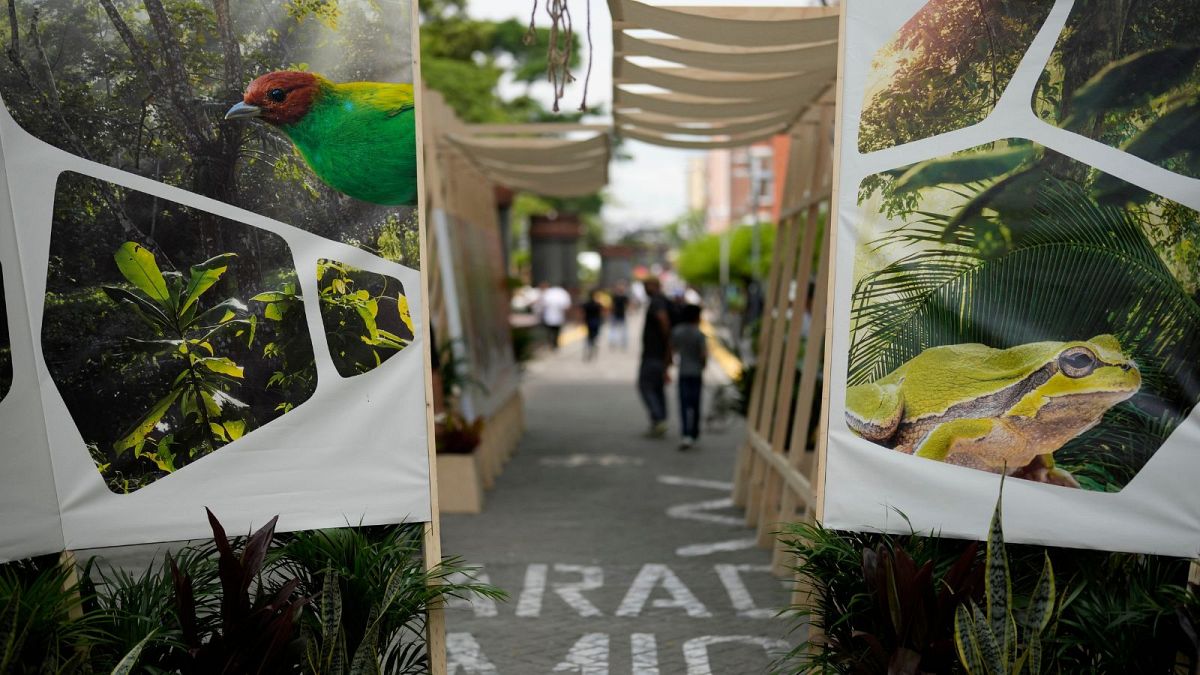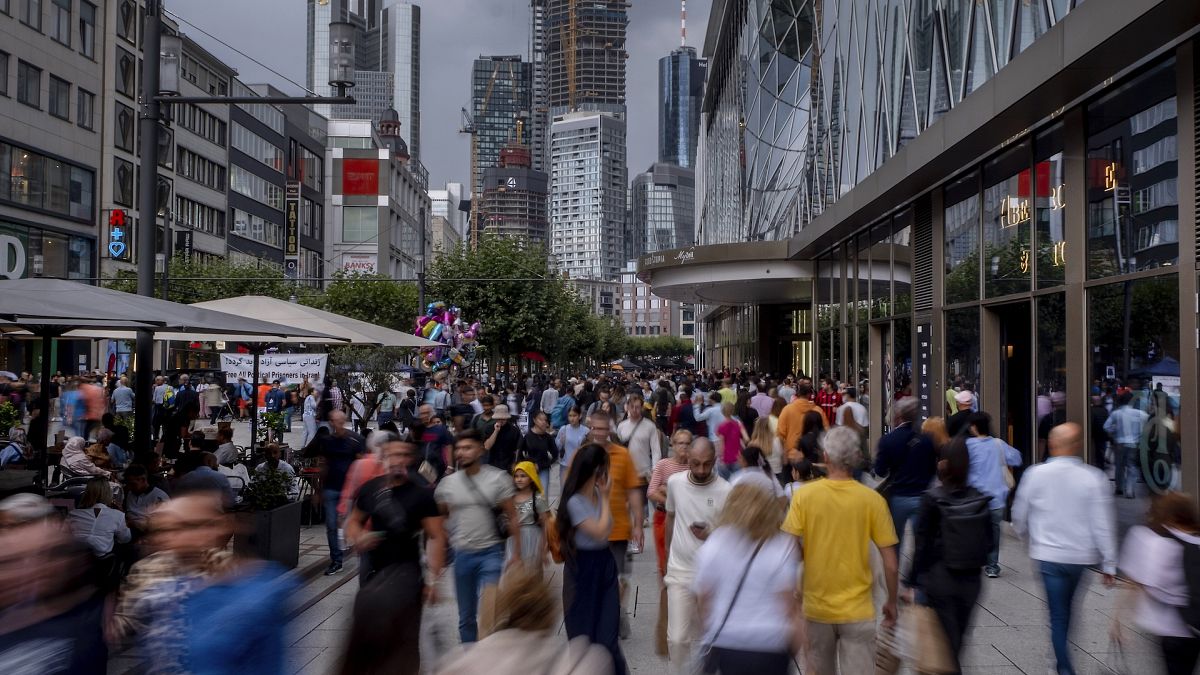Why Hamburg’s plan to ‘decolonise’ Bismarck statue failed
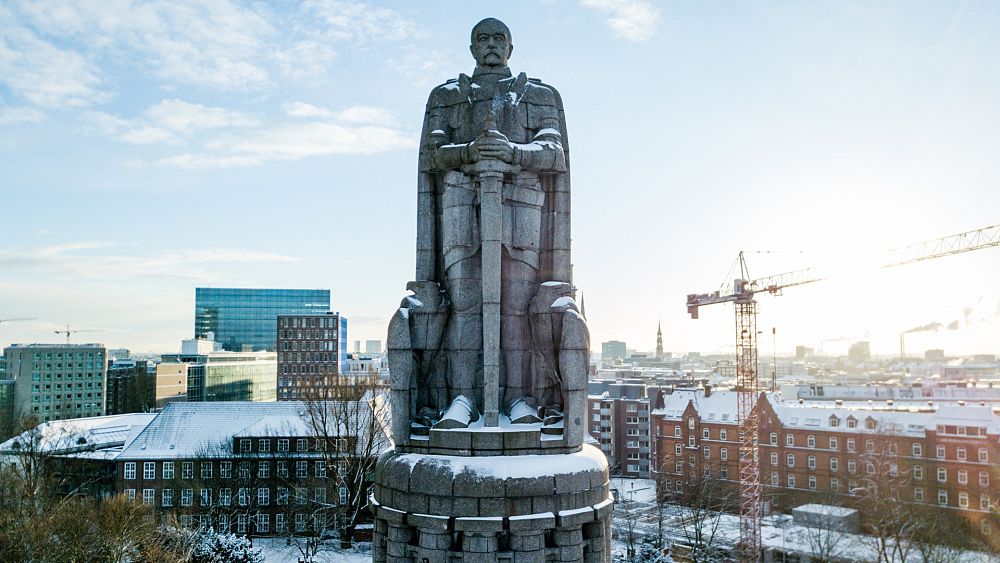
Hamburg held a competition to re-imagine its monument to Otto Von Bismarck. Its failure reveals the struggle facing decolonial movements in Europe.
Otto Von Bismarck towers over the city of Hamburg.
Standing atop a hill at 34 metres tall, the monument in the north German port city is the world’s largest statue of Germany’s first chancellor, and can be seen from hundreds of metres away.
The statue has weathered many storms since its completion in 1907 – it survived two World Wars, became a canvas for graffiti artists and endured the classic wear-and-tear of any city monument exposed to the elements.
That’s why in 2014, Hamburg decided to refurbish it – a project that would last years and cost around €9 million.
But that decision was made before the police killing of African-American George Floyd in 2020.
Floyd’s death sparked a global anti-racism movement, and made people around the world rethink the legacy of colonialism, and the message behind monuments dedicated to colonial leaders.
Bismarck, the “Iron Chancellor” behind Germany’s unification in 1871, was also the founder of Germany’s colonial empire and the host of the Berlin Conference of 1884, where Europe’s colonial powers first carved up Africa.
In the wake of Floyd’s murder, the hero of German unification began to be seen as a problematic figure in Germany’s colonial past.
And suddenly, there was a new debate on what to do with Hamburg’s Bismarck statue.
Decolonising Hamburg and Rethinking Bismarck
In 2021, the city of Hamburg’s centre-left government held a series of workshops with international experts to discuss how to bring the statue into the 21st century, as part of a broader “Decolonise Hamburg!” initiative, which is funded by the German Federal Cultural Foundation.
Officials came up with a plan to hold a competition, sponsored by the Museum for Hamburg History and the Ministry of Culture and Media, inviting artists and architects to propose solutions “to develop ideas for recontextualising the monument”.
The winner would be decided by a jury made up of “specialists from art, culture, architecture and history, from campaign groups that have critically challenged Hamburg’s colonial past, as well as protagonists from former German colonies, internationally active artists and representatives of civil society organisations and citizens of Hamburg,” according to the press release for the programme.
But the contestants were given one major limitation – the Denkmalschutzamt, Hamburg’s Monuments Protection Office, decreed that the proposals could not alter the Bismarck monument, nor could they attach anything to it.
“All interventions must comply with the binding requirement that the material substance of the monument, protected by law since 1960, may not be altered or damaged, so that scrutiny of the authentic object also remains possible in the future,” the official documentation for the competition reads.
For some of the jury members, this represented a fundamental flaw in the foundation of the competition.
“I protested during the first phase (of the competition),” said jury member Juergen Zimmerer, a historian of colonialism and professor at Hamburg University. “I said, ‘It’s absurd that the institution for the protection of monuments defines the limits of the decolonisation of a monument, because that automatically means that the imperial setup of the monument is perpetuated in eternity.’”
After considering the eight shortlisted proposals, the jury came to a unanimous decision: none of the solutions would do.
“We came to the conclusion that under the conditions of this competition, an artistic intervention seems not possible,” Zimmerer told Euronews Culture. “We didn’t want to say it’s the artists’ fault, it’s just that under the conditions there’s not much you can do.”
A flawed premise, a failed experiment
With solutions that altered the statue disqualified from the outset, one of the main issues that presented itself was the monument’s imposing size and the fact that it sits atop a hill, making it even taller.
“You can’t put up a counter monument because that would have to be 100 metres high,” said Zimmerer. “You cannot build anything hiding Bismarck because Hamburg is a harbour town with strong winds. And since we cannot attach anything to the statue itself, it would need a gigantic structure.”
One idea to create a structure encasing the statue as a site for debates to take place was scrapped because it was too impractical for debaters to climb up so high.
In a statement, the jury recommended a shift in focus to mediation and social discourse to tackle the issue of Bismarck’s colonial legacy instead.
But according to Zimmerer, the competition was doomed from the start due to its inherent contradiction: It’s impossible to change something without allowing it to be changed.
“If Hamburg wants to decolonise Bismarck, (there should be) a new competition saying we are allowed to change the statue in itself and it wouldn’t be a problem at all to get some convincing proposals,” Zimmerer told Euronews Culture. “So it was the rules of the competition that made the competition fail.”
The failure proved to be ample fodder for Hamburg’s conservative opposition, which slammed the entire campaign as a “farce” costing taxpayers €27,000.
“There is no question that figures like Bismarck must be evaluated in the context of time,” said Dennis Thering, chairman of the CDU parliamentary group in the Hamburg assembly. “However, the effort of a jury to decolonise Hamburg without result is a scandalous waste of tax money that is now even meant to continue.”
How to address colonialism? A raging debate in Germany and Europe
Germany is in a unique position, as one of few Western countries that has been forced to learn to confront the less palatable parts of its history.
Since 1992, teaching the subject of the Holocaust and the Nazi era has been mandatory in German schools. And almost all students have visited a concentration camp or a Holocaust memorial or museum.
But the recent discourse surrounding the legacy of colonialism has split the German public.
“Being critical of the past is nothing earth-shattering in Germany,” Zimmerer said. “People are willing to accept it. But on the other hand, there is a tendency in Germany to say, ‘Oh we did so much in self-criticism towards World War II and the Holocaust. Enough is enough.’”
The issue has led to some tense situations between those who fight to decolonise public spaces and those who prefer to preserve the status quo. In Berlin’s so-called “African Quarter,” a campaign to rename some of the streets honouring 19th-century colonialists was met with resistance from locals.
Bismarck has also become something of a lightning rod for the divisive debates – the Federal Foreign Office in Berlin was criticised for taking down a portrait of the “Iron Chancellor” and changing the name of a room from “Bismarck Room” to the “Hall of German Unity.”
In Bautzen, Saxony, a group closely tied to the far-right tried and failed to reinstall a statue of Bismarck that was destroyed in 1950 by the communist regime.
“A lot of people defend Bismarck because they say the entire German history is not contaminated, only 12 years,” says Zimmerer. “They’re saying we want good old Germany back. We accept that 12 years were bad, nobody’s defending it. But the rest is good.
“And now the colonial/postcolonial debate contradicts that because it says, ‘Oh, not only is it not good, it also harbours the seeds for the catastrophe of 1933 to 1945.”
Zimmerer calls it “colonial amnesia,” the ignorance surrounding Germany’s role in the colonisation of Africa, which was initiated by Otto Von Bismarck.
So what should be done with Hamburg’s Bismarck monument? According to Zimmerer, it should have been left alone in the first place.
“The right choice in 2014 would have been not to renovate it,” Zimmerer said. “After 100 years, he would fall down. That is the normal way history goes. You erect monuments and they topple. The intervention was to prevent him from falling down, which was a political act in itself. They should have left him alone, but they decided to intervene.”
Source: Euro News


